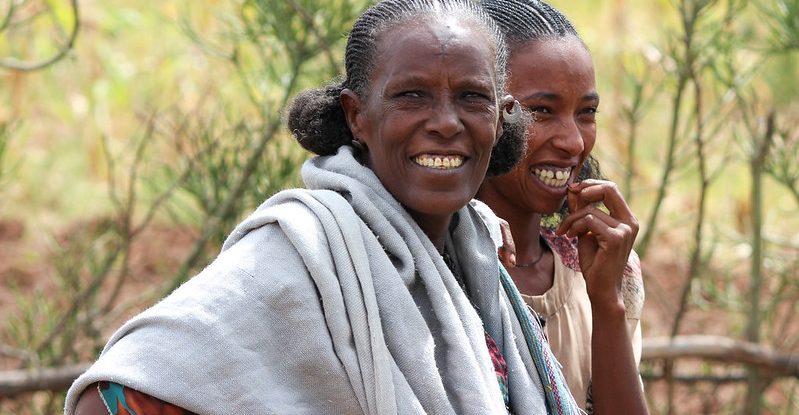In Addis Ababa, Ethiopia, in mid-November 2023, a group of professionals – staff from the Center for International Forestry Research and World Agroforestry (CIFOR-ICRAF) and its donors and partners – stood on the lawn in a line. They’d each been given characters to play, with defined genders and other social identities such as being rural or urban, being disabled or able-bodied, and being educated or uneducated.
The facilitator called out a statement, such as “I was able to achieve the level of education that I wanted”, and the participants stepped forwards or backwards depending on whether it was true or false for their character. By the end of the exercise, the once-straight line was in disarray, with some characters standing far in front and others lagging a long way behind.
The goal of the task was to explore different kinds of privilege and discrimination, and how these impact our lives differently depending on our particular assemblages of identity – even if we begin at a similar starting point.
It formed part of a day-long gender awareness training run on three occasions, on 17, 21, and 22 November, as part of the second phase of the Provision of Adequate Tree Seed Portfolio (PATSPO II) project. Following a gender analysis of the project in November 2022, the first gender awareness training was run in March 2023. Fifty-five participants attended the November trainings, which was facilitated by Katrine Gro Friborg, a gender consultant from the University of Copenhagen, and Beliyu Limenih, a consultant from Ethiopian Forestry Development (EFD). Now, Friborg and Limeneh are preparing gender-inclusive training guidelines for farmer tree seed collectors.
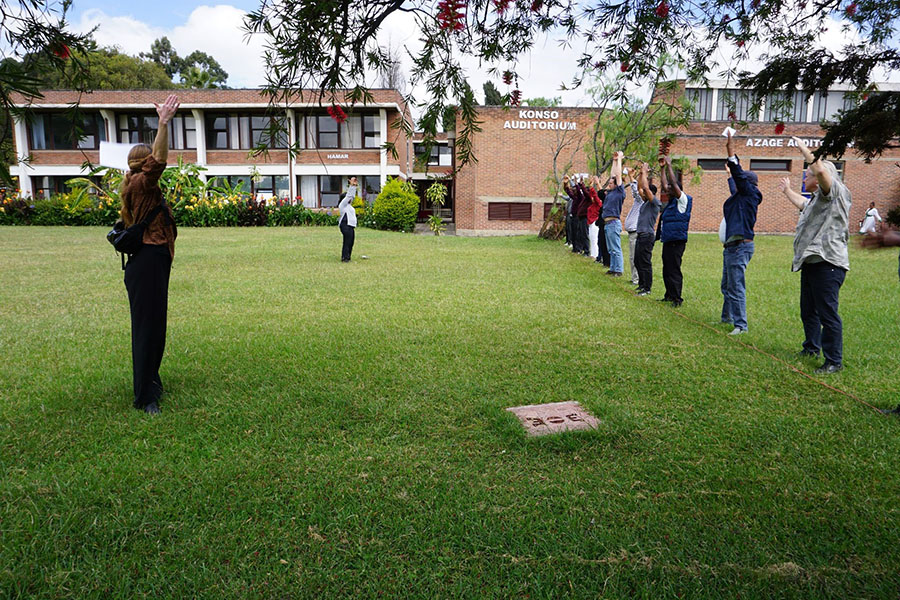
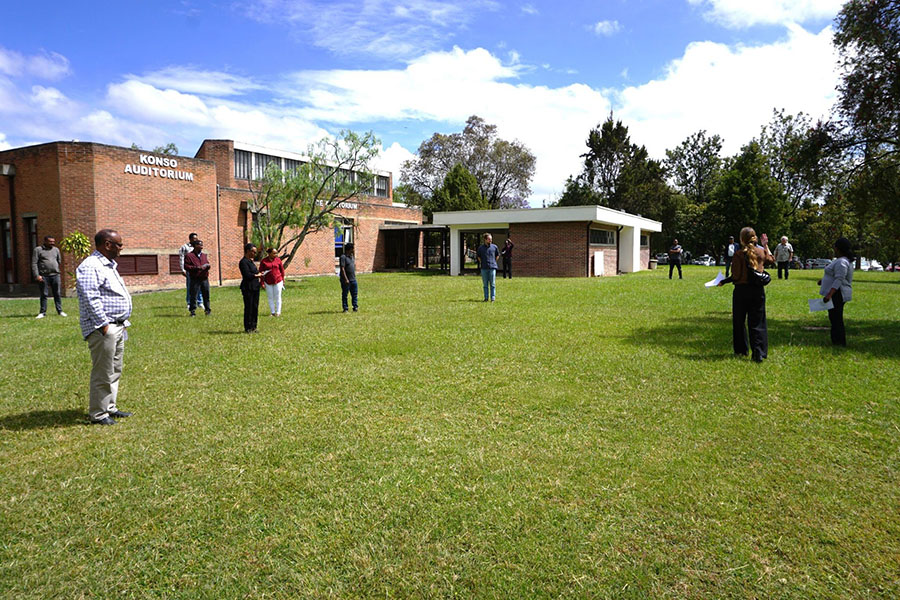
Participants take part in an experiential exercise on privilege and discrimination. Photos by CIFOR-ICRAF/Eyob Getahun
Emnet Wolde Giorgis, a forestry expert at EFD, said she was very moved by what she learned. “I was representing a disabled, uneducated woman from a rural area, and I found myself standing behind everyone else,” she said.
“When I compared myself to that woman, I realized that while I have had advantages compared to her because of being able-bodied, educated, and urban, I have also been a victim of gender roles and norms. I have been dragged backwards in many of the same ways that she was: the challenges she faces as a woman, I also face. During the exercise, I was taken aback by the gap between the character I was representing and the ones at the front; I realized how much I have also been affected by those challenges in real life.”
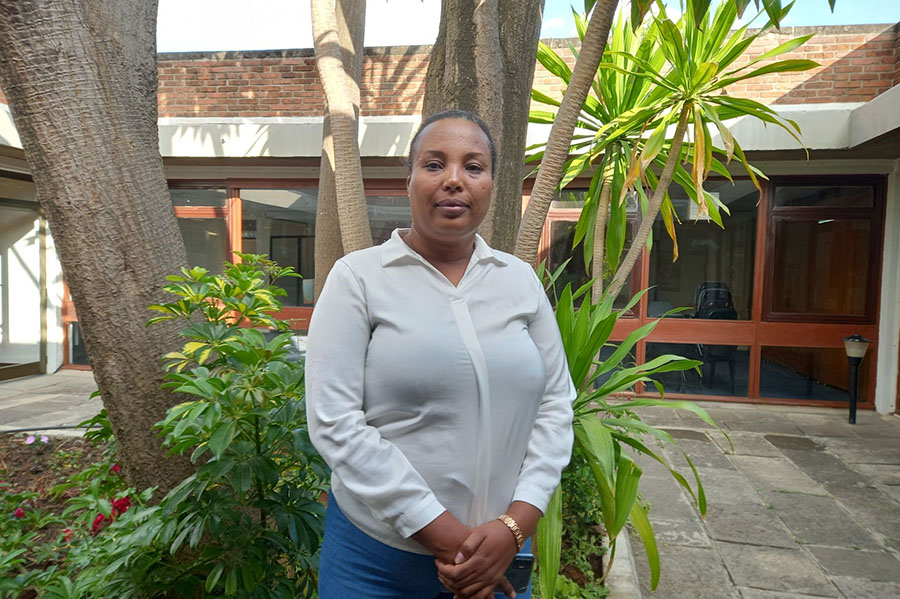
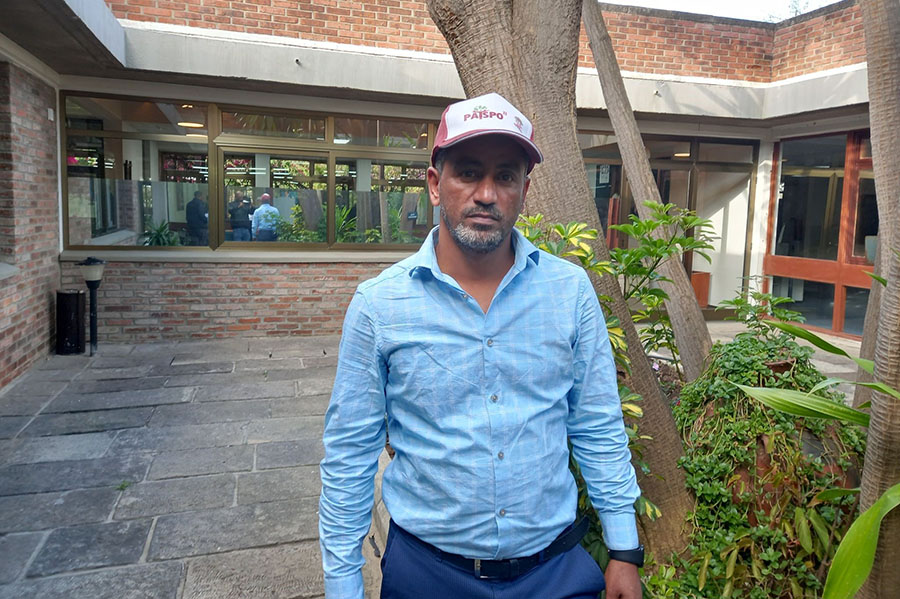
Left: Emnet Wolde Giorgis, a forestry expert at Ethiopian Forestry Development (EFD). Right, Fayssal Jemal, acting director of forest resources and carbon measuring department at EFD. Photos by CIFOR-ICRAF/ Eyob Getahun>
Emnet said the training made her want to be part of the solution and make a difference. “I wish this training could be given to many people,” she said. “We particularly need to go into the rural areas and train women farmers who are working in the area of forest development, for we cannot achieve what we want to achieve without their participation.”
Fayssal Jemal, who is acting director for EFD’s forest resources and carbon measuring department, also participated in the training – his first ever on gender – and was impacted by what it uncovered. “Things I don’t give much attention to in real life, I was made to notice during the training,” he said.
During the ‘line’ exercise, “there were privileged women characters at the front, and there were underprivileged men characters who were at the back, and from that exercise, we understood that if both men and women are given equal opportunities, they all can perform well in life,” he said.
Reflecting on his own life and that of women in his family, Fayssal observed that “my sisters did not get the opportunities I got, because I grew up in a family that accepted the gender roles given by the society. My brothers and I had ample time to study; and if we were not studying, we played, while my sisters were forced to help with household chores. They were denied the opportunity I was given. So, the boys in my family have achieved well in education, but the girls couldn’t do so: what mattered most to decide our destinies was not our sex but our gender.”
Fayssal has two daughters and a son, and said he is doing his best not to make his daughters victims of gender roles assigned by society. “I sometimes hear my daughters say, ‘I can’t do this because I am a girl’, and I advise them not to undermine their potential,” he said.
We want you to share Forests News content, which is licensed under Creative Commons Attribution-NonCommercial-ShareAlike 4.0 International (CC BY-NC-SA 4.0). This means you are free to redistribute our material for non-commercial purposes. All we ask is that you give Forests News appropriate credit and link to the original Forests News content, indicate if changes were made, and distribute your contributions under the same Creative Commons license. You must notify Forests News if you repost, reprint or reuse our materials by contacting forestsnews@cifor-icraf.org.
